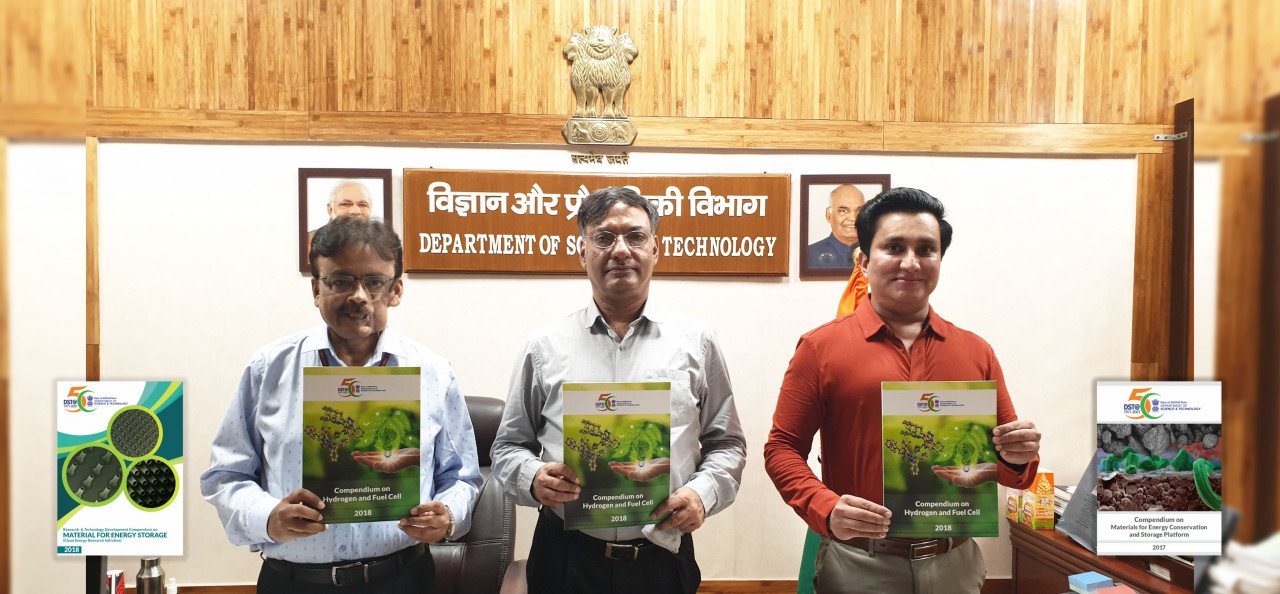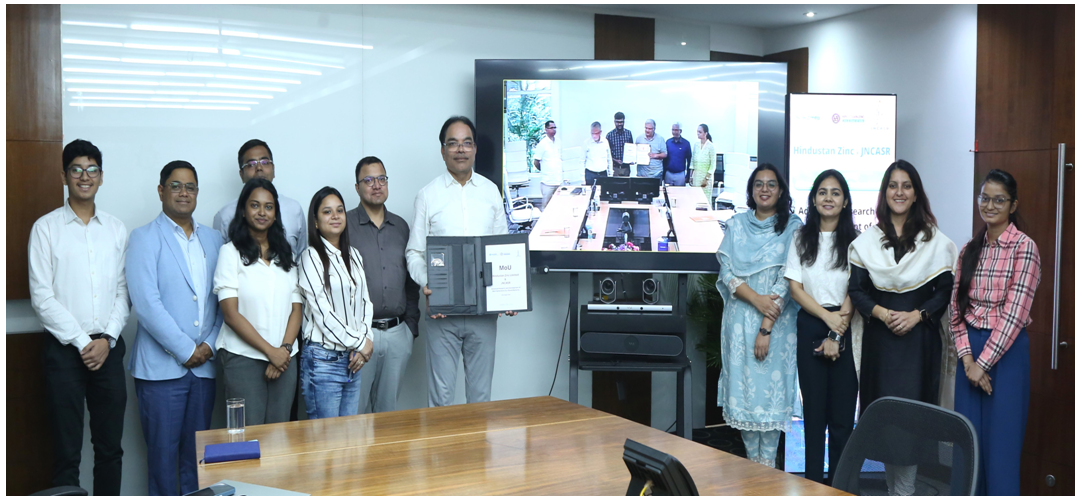DST unveils compendiums on H2 fuel cell, energy storage material, and conservation
The Department of Science and Technology has announced that it has launched three compendiums collecting information on ongoing research activities in the country associated with hydrogen and fuel cell and materials for energy storage and conservation by scientists, industry, utilities, and other stakeholders from R&D laboratories and academia.
The compendiums called Hydrogen and Fuel Cell (HFC) 2018, Material for Energy Storage (MES 2018), and Material for Energy Conservation and Storage Platform (MECSP 2017) were unveiled by Ashutosh Sharma, Secretary, the Department of Science and Technology, a declaration said.
Greater consumption of renewables in the energy mix is India's policy objective to accomplish de-carbonization. While there are numerous pathways for de-carbonization varying in time frames, hydrogen produced from renewables is considered the cleanest energy source.
Contemplating the importance of hydrogen in the emerging landscape of clean energy, the DST had already incubated a small Research and Development programme a few years ago to act as a pilot that can be scaled up according to national requirements and priorities in the future.
According to the declaration, a set of 29 projects have so far been supported under this programme across three important areas related to a hydrogen economy - production, storage, and utilization.
All these projects are presented in different stages of implementation. The programme can now be fine-tuned and closely aligned to achieve the specific R&D needs and priorities of the National Hydrogen Mission, with equivalent scaling up, it said.
Materials discovery and development crosscut the entire energy technology portfolio from energy generation and storage to delivery and end-use
Materials are the foundation of every clean energy innovation: advanced batteries, solar cells, low energy semiconductors, thermal storage, coatings, and catalysts for the conversion, capture, and use of carbon dioxide. In short, new materials constitute one of the cornerstones for the global transition to a low-carbon future.
The process of discovering and developing new materials currently involves considerable time, effort, and expense. Each newly discovered molecule is run through simulation, synthesis, and characterization, with synthetic procedures taking from 10-20 years at a very high cost.
However, materials discovery and development are at the cusp of a transformational change that could reduce the time to design, optimize, and discover new materials by at least 10 times, reducing it down to one or two years, the statement added.
Recognizing the challenges and opportunities associated with the materials discovery, the DST, under its Clean Energy Research Initiative, mounted a thematic Research and Technology programme on Materials for Energy Storage (MES 2018) and Materials for Energy Conservation and Storage Platform (MECSP 2017).
A total of 26 projects have been supported under this programme so far, and four MECSP centres were set up by DST, nucleated at IIT Delhi, IISc Bangalore, NFTDC Hyderabad, and IIT Bombay.





















